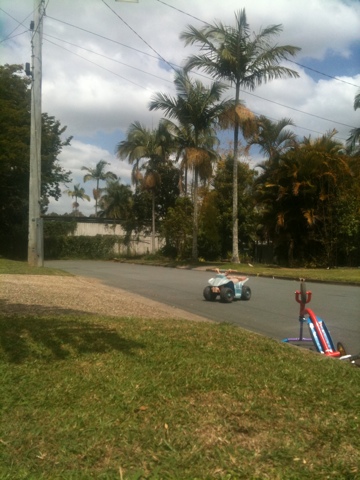We are doing a unit of work on Deforestation and everything that goes along with it. We have been looking at the Deforestaction project and been investigating some of the issues regarding Palm oil and various other things that go along with it. Obviously we are looking at the concept of sustainability and the kids have been really excited. One of our design tasks for this is to work in groups and make a chair out of cardboard. The students are very excited about this and are really looking forward to it. The only criteria is that the chair has to be able to hold a weight of 60kg for a substantial period of time. Below is a video of the type of things that we are looking for. They obviously have to demonstrate their thoughts during the design process and students have already come up with creative ways in which they are going to do that.
Another learning task that we are going to be doing is titled 'Robot Disco'. I have never been a big robotics man but an idea struck me in the craziest of places. In the last week of term three, I got a text message from my wife asking if I would work with a teacher from her school on her ICT Certificate. Being the exceptional husband that I am, I agreed and work with this teacher. When my wife told me that she would be in the computer lab after school, I got excited. When I walked in, I was more than excited! She was working with a team of 10 students after 3pm on Robotics Club. To be honest, I had never paid much attention to robotics. I knew that you could program stuff and make it happen but then a brainwave hit me: Holy crappoo.....this is curriculum! Why haven't I jumped on board this before? I was inspired by this teachers idea and decided that I was going to do something about it.
I went back to school the next day and talked to our fantastic libarian Nicola Flannagan who is a bit of a robotics expert. When I told her of my plan, she was as equally excited as me. At our school, we have never had anybody who has used it within the classroom as a curriculum task. It has always been a fun add on thing. Collaboratively, we decided that the task is going to be this simple:
Working in a teams of 3 (with one group of four) you are required to program a robot to perform a series of movements to a piece of music of your choice. Your robot must ‘dance’ and be able to perform commands to achieve a desired outcome of motion
I realise that that some of you may be thinking "Big deal!" but I truly think that this is. When I started to do some research into the mathematical concepts that the kids will be exposed to within this task, I think that they engagement level is going to be off the charts. If they can come up with anything like the video below, I will be a happy chappy!
I would love your feedback - feel free to leave me a comment.













